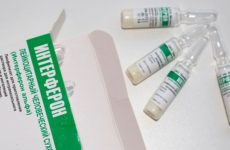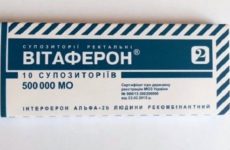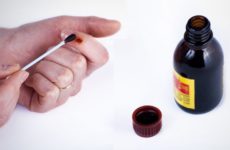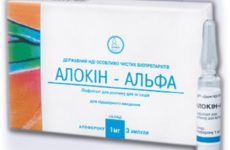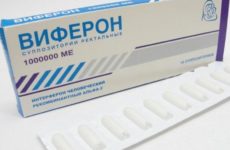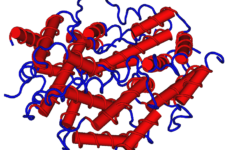Modern pharmaceutical companies offer an extensive range of foreign and Russian-made immunomodulators .
The most accessible and common is the drug Polyoxidoniumproduced by Russian organizations. Contains a number of pharmaceutical configurations that can be used to treat children, increases the resistance of their body to local and generalized infections.
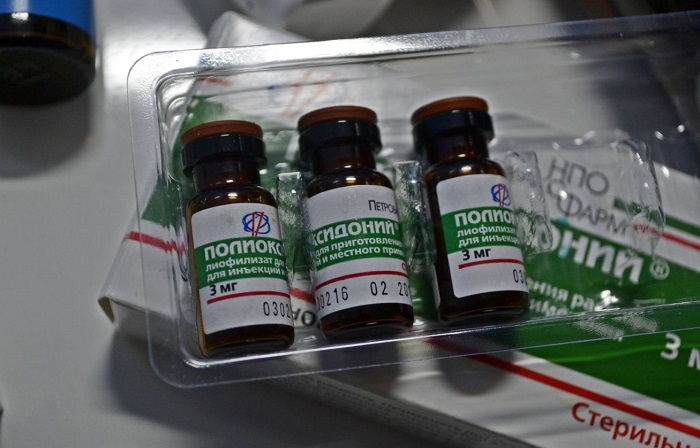
Содержание:
- 1 Composition and form of release of Polyoxidonium drops
- 2 Operating principle
- 3 When are they assigned?
- 4 From what age can you take it?
- 5 Instructions for use of the drug: how to dilute, dosage
- 6 Application for violations of kidney function
- 7 Consequences of an overdose
- 8 Unwanted Effects
- 9 When should the drug be discontinued?
- 10 Interactions with other drugs
- 11 Terms of sale
- 12 Storage features and shelf life
- 13 Polyoxidonium analogues
- 14 Reviews
- 15 Conclusion
Composition and form of release of Polyoxidonium drops
The drug is sold in three dosage forms:
- tablet form for oral administration;
- suppositories for vaginal and rectal use;
- powder form (lyophilizate) for intramuscular injection, and also most often for use under the tongue and in the nasal passages.
The lyophilizate for the preparation of drops looks like a hygroscopic and light-sensitive porous substance from yellow to white with a yellow color.
As in other forms of the drug, in drops the active ingredient is azoximer bromide, the dosage per vial is 3 mg or 6 mg. It is this substance that is a highly effective immunity modulator, thanks to which the body increases the ability to resist bacterial active organisms at a young age.
Auxiliary components are povidone, betacarotene, mannitol.
The lyophilizate is produced in vials of 3 mg or 6 mg.
Operating principle
The main benefit and principle of action of Polyoxidonium is:
- activation of the human immune system;
- reducing the sensitivity of the body to infectious pathogens;
- providing a detoxifying effect, absorbing a dangerous excitatory substance and removing it from the body;
- accelerate the regeneration of damaged tissues.
In addition, the drug increases the resistance of cell membranes to the action of chemicals on them, that is, reduces their toxicity.
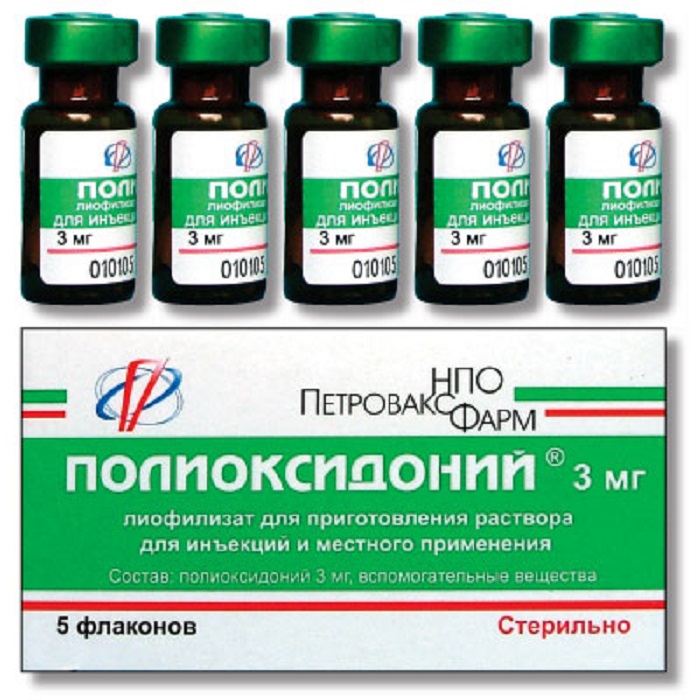
When are they assigned?
It is indicated for use in children from 6 months in conjunction with other drugs for:
- recurring infectious diseases;
- treatment of acute and prolonged pathologies, stimulated; bacterial, fungal, and viral infections;
- emergency manifestations of allergies: eczema, asthma, hay fever, atopic dermatitis;
- tuberculosis;
- oncology (during and after chemotherapy and radiation therapy, in order to reduce the immunosuppressive, hepato- and nephrotoxic effects of drugs);
- rehabilitation for frequent and long-term illnesses.
From what age can you take it?
Polyoxidonium nose drops can be used from the age of six months.
The drug is well tolerated by patients. Its significant advantage is the absence of polyclonal and growth-stimulating activity, without the manifestation of antigenic properties. It does not have a mutagenic, teratogenic, allergenic effect.
Instructions for use of the drug: how to dilute, dosage
Consider the instructions for use.
For children
In order to prepare nose drops from a dry concentrated powder of lyophilizate, you will need distilled water, or boiled water at room temperature, or saline purchased at a pharmacy. Doctors recommend the latter option as the safest.
To prepare, dilute 3 mg of dry lyophilizate with 1 ml of distilled water (boiled water or saline), mix thoroughly and store in the refrigerator for no more than 7 days.
The dosage for the day should be calculated by the doctor, taking into account the weight of the child. 1 drop per 1 kilogram.
Therefore, if your child weighs 21 kg, you will need: 21 * 3 = 63 mg of dry powder and 1 * 21 = 21 ml of distilled water (boiled water or saline).
Apply in the nose: 1-3 drops in each nostril, every 2-4 hours of treatment. The duration of treatment is from 5 to 10 days. A second course of application should be made no earlier than one month after treatment after consultation with a doctor.
Adults
The use of drops is applicable only in children. For adults, use the other two forms of the drug:
- tablet form for oral administration;
- suppositories for vaginal and rectal use.
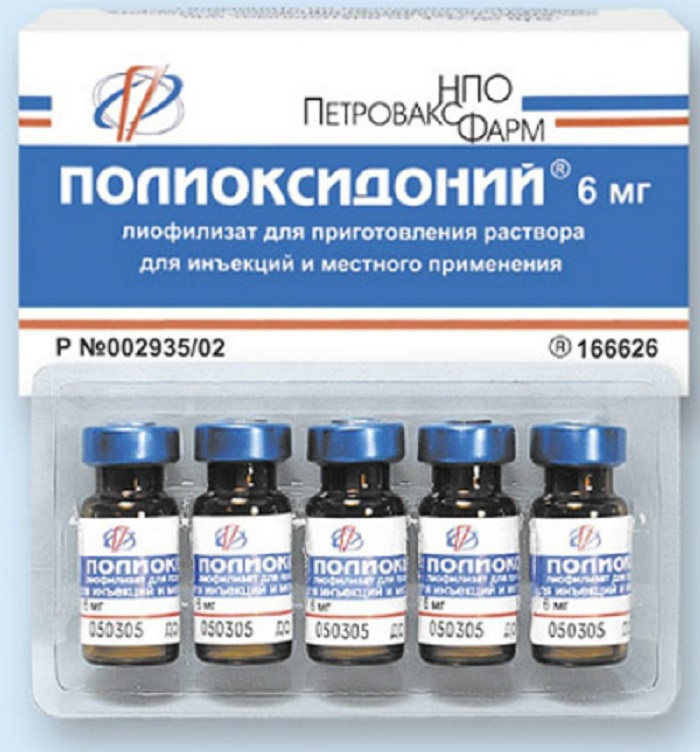
During pregnancy and lactation
Use of the drug during pregnancy and lactation is strictly prohibited.
Application for violations of kidney function
In pathologies and chronic kidney diseases, use with caution after consulting a doctor no more than 2 times a week.
Consequences of an overdose
The consequences of an overdose are not currently registered. Nevertheless, the dosage recommended by the doctor and the duration of the course of treatment should not be exceeded.
With drip administration, it is impossible to use infusor solutions in which protein is present to dissolve the lyophilisate.
Unwanted Effects
When using the drug, the following undesirable effects may occur:
- hives;
- rash;
- swelling of the mucous membranes;
- dry mouth;
- dyspnea.
When should the drug be discontinued?
If you experience an allergic reaction from the above, you should stop using the drugs and consult a doctor.
Interactions with other drugs
It is allowed to combine the use of Polyoxidonium with antibiotics, antiviral, antifungal and antihistamine drugs, bronchodilators, glucocorticosteroids, cytostatics.
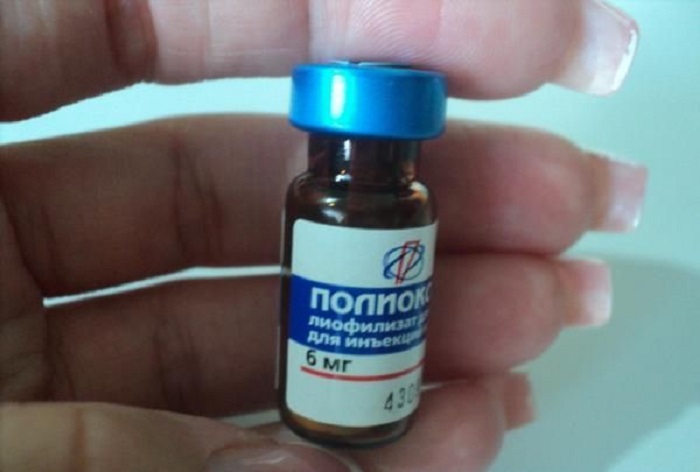
Terms of sale
It is released without a prescription, but it should be used only when prescribed by a doctor, according to the dosage.
Storage features and shelf life
In finished form, store the drug in a dry, dark place, out of the reach of children, at a temperature of 4 to 8 degrees for no longer than 7 days. In dry form, the shelf life is 2 years. It is unacceptable to use after the expiration date indicated on the package.
Polyoxidonium analogues
Analogues of the drug include:
- Broncho-munal.
- Anaferon.
- Broncho-munal.
- Immunal.
- Arpetol.
- Derinat in ampoules.
- Isophon.
- Bioaron.
- Arpetolid.
- Arpeflu.
- Ribomunil.
- Cytovir-3.
- Polymuramyl.
- Ismigen.
Reviews
The drug is in great demand, as it provides safety for children with a convenient dosing method and efficiency. According to reviews, the drug Polyoxidonium facilitates the course of the disease if used in complex treatment. Also, in oncological diseases, the drug has a positive effect on patients with a weakened body.
There are also negative reviews. In rare comments on the action of the drug, it is said that it did not improve the patient’s condition and did not bring any changes. However, in some cases this is due to an independent incorrectly selected treatment regimen without a doctor’s recommendation.
The high price is also called a disadvantage, however, the concentrated composition ensures the economy of powder consumption and its efficiency. This makes the disadvantage of a decent price justified.
Conclusion
In conclusion, it should be emphasized that the drug Polyoxidonium is an effective medication necessary for weak immunity in children. The popularity of this drug has more than 20 years. It is very popular in the pharmaceutical market due to its effectiveness, good dosage selection and convenient application.


